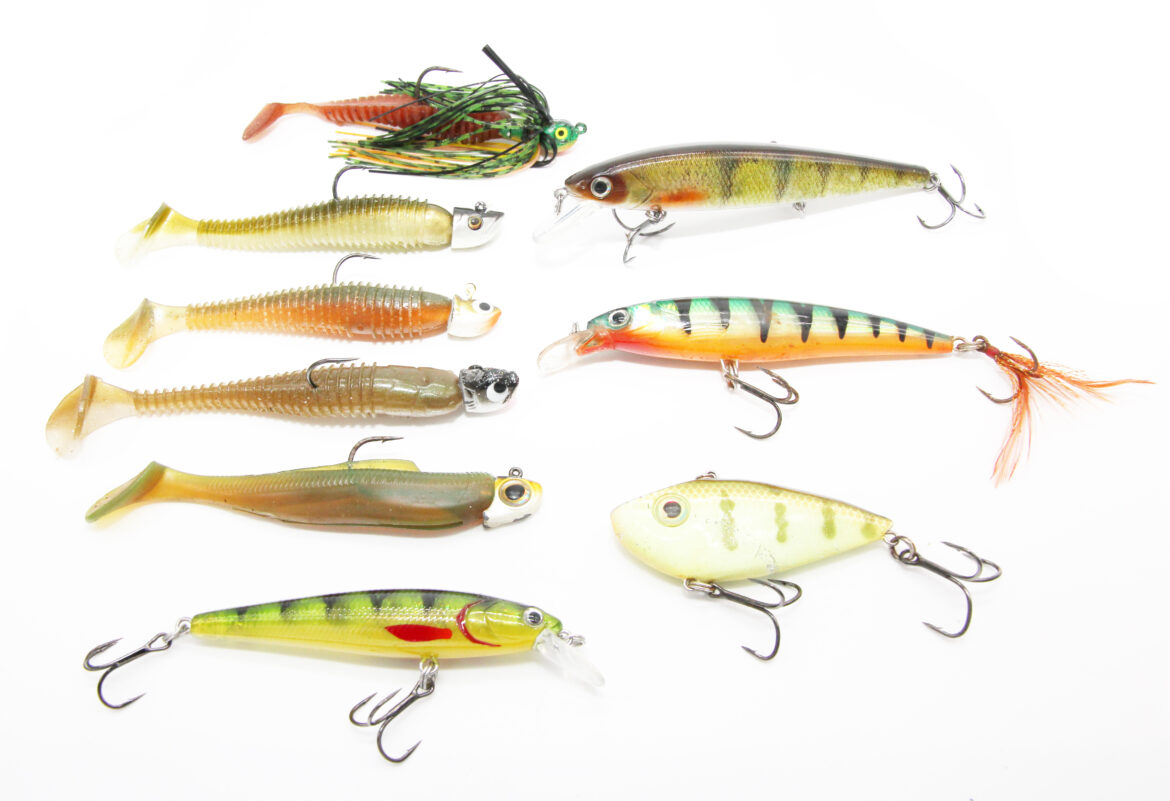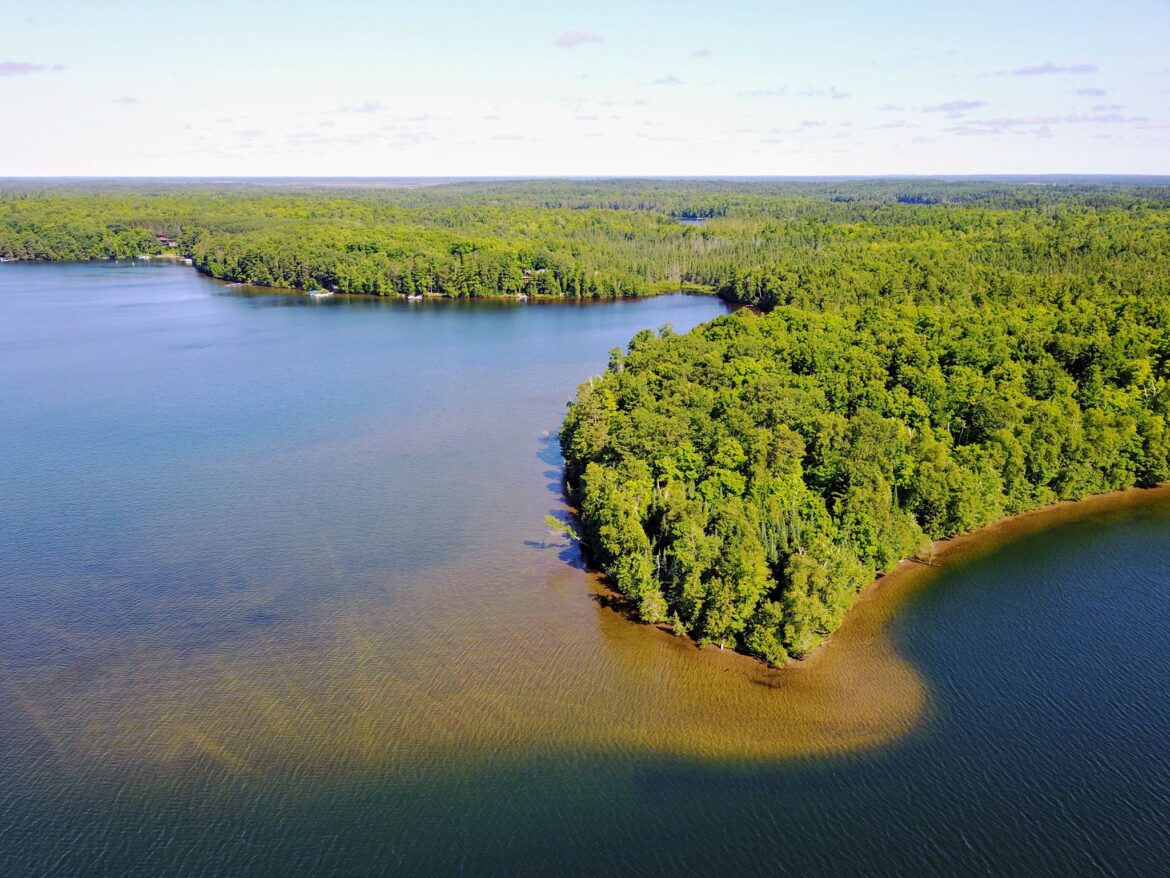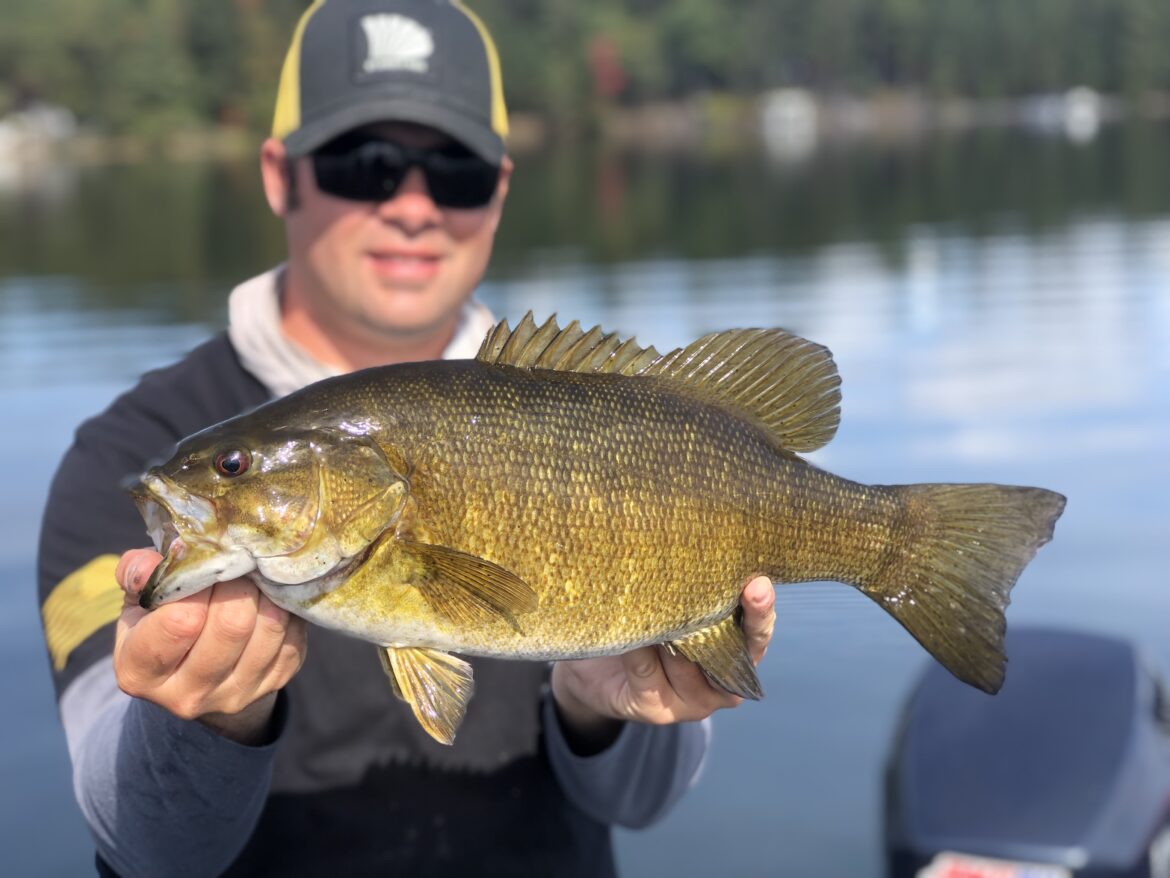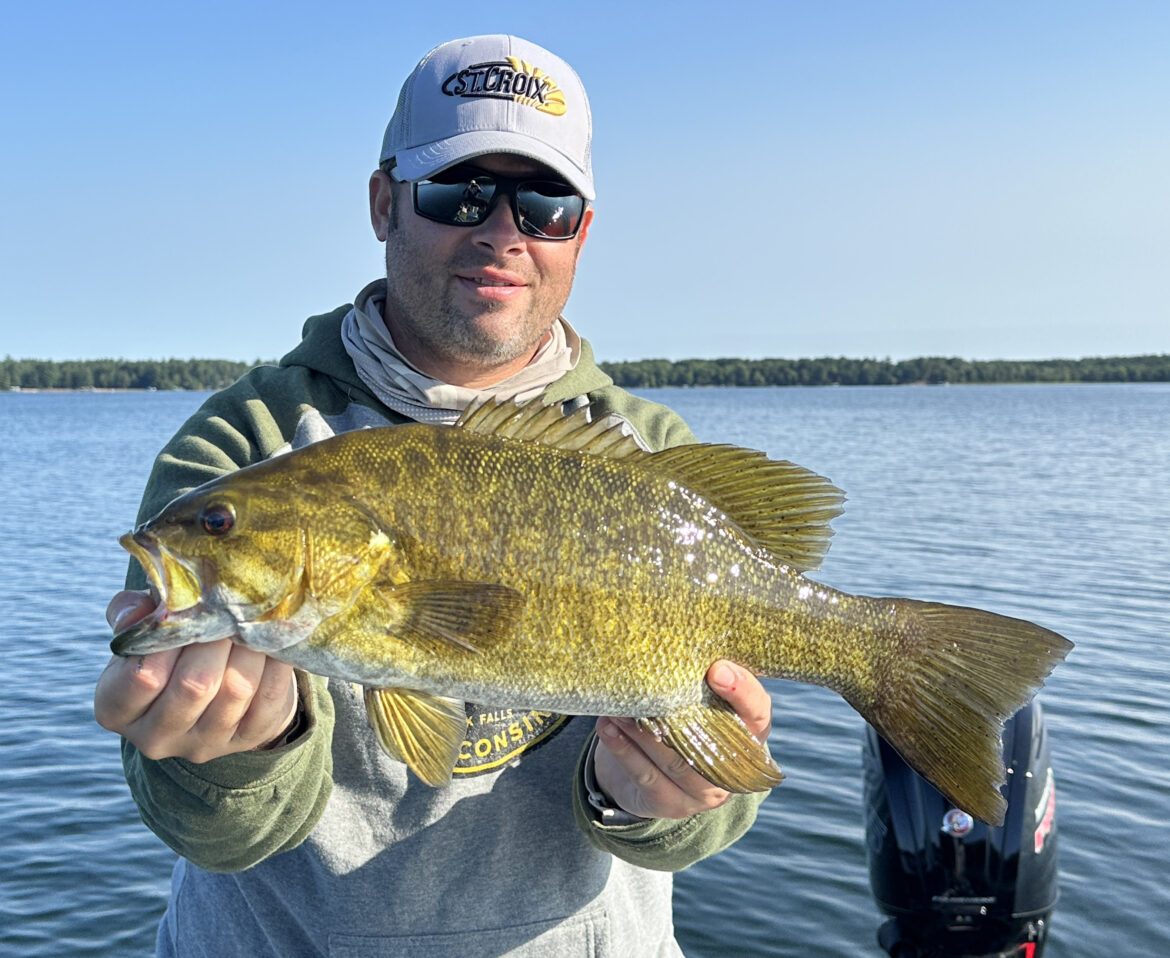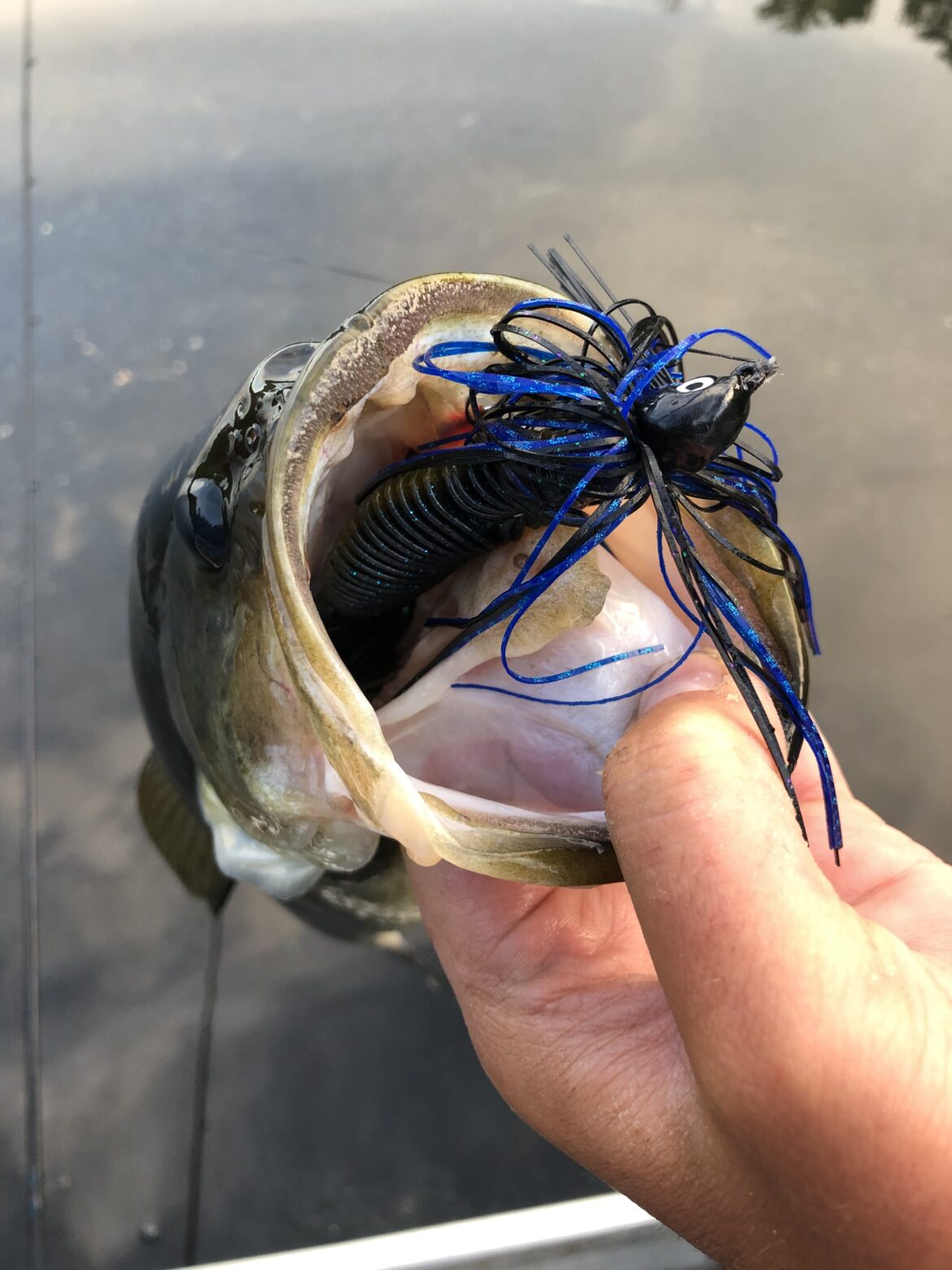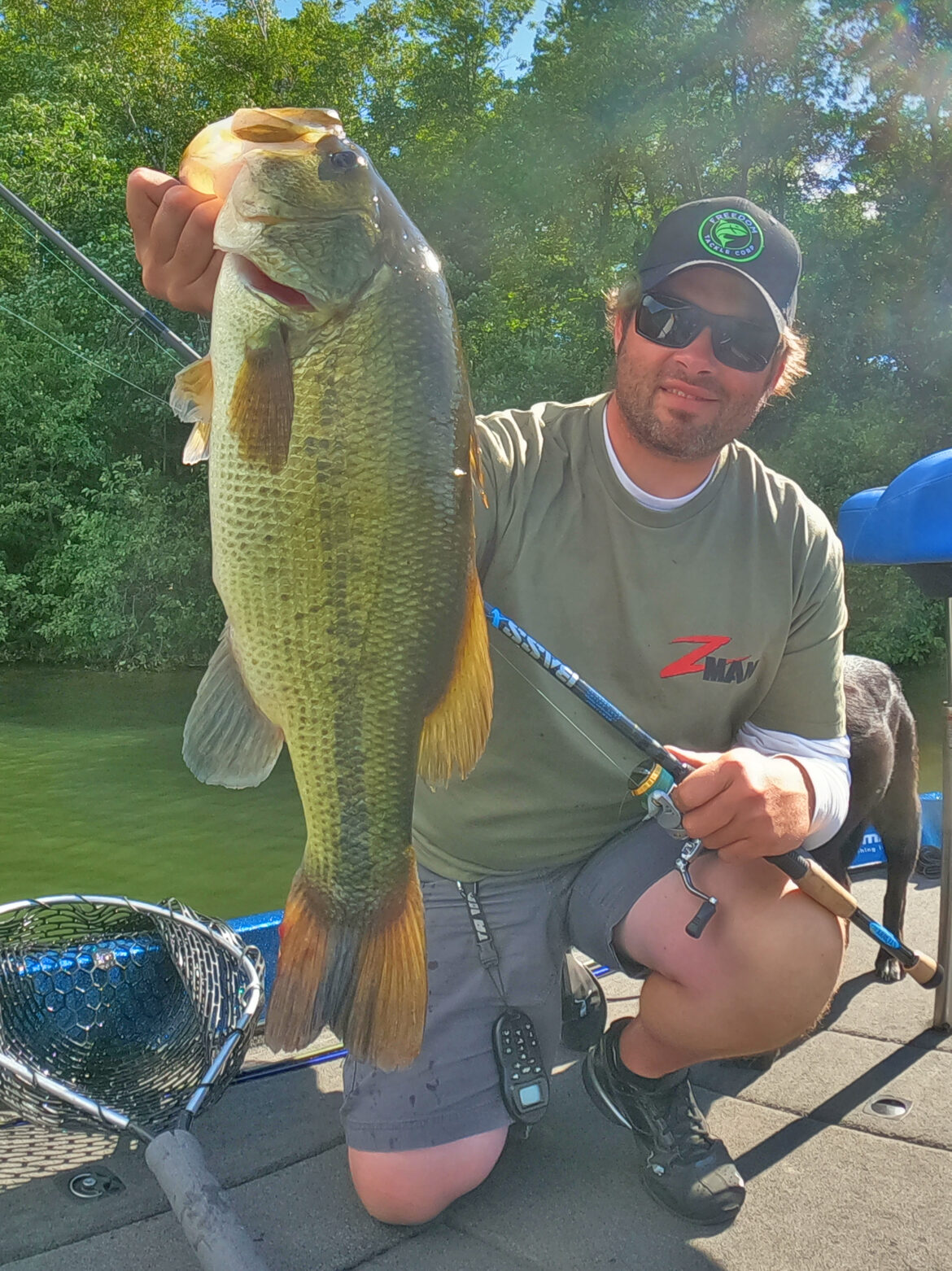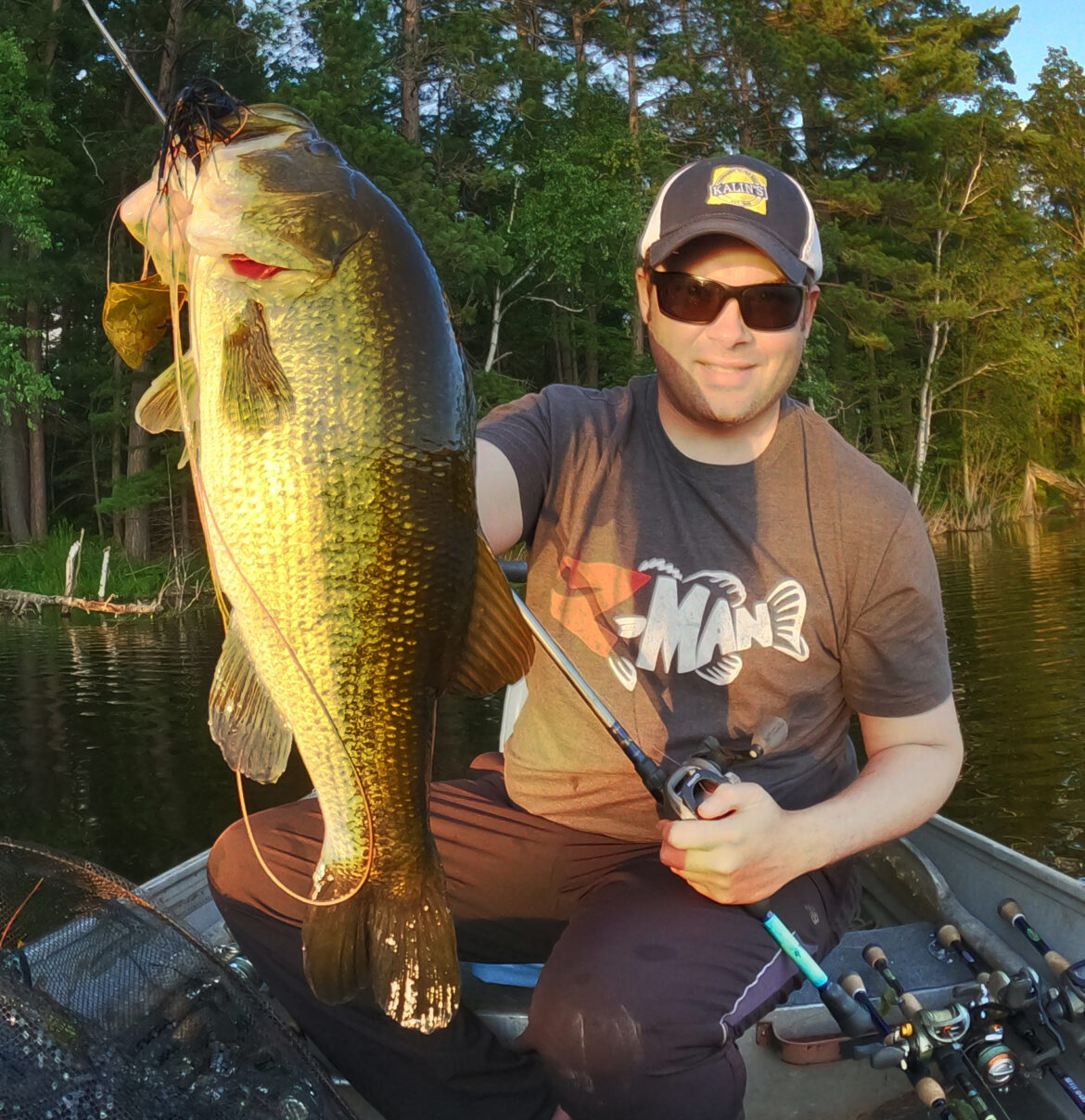Published articles by Andrew Ragas. The most comprehensive bass fishing library for Wisconsin bass fishing and across the Midwest.
Horizontally September
Monday, 09 September 2024
As water temperatures gradually cool, the lakes eventually turn over, and smallmouths slide deeper to the point of wintering, the tackle box closes. As these events simultaneously occur, my boat’s tackle selection lessens each week – and the majority of gear and tackle I’ve carried up to this point will no longer be needed.
- Published in Bass Fishing Articles, Short Stories and Timely Tips, Smallmouth Bass
The Features of Flats
Sunday, 01 September 2024
Trip after trip, and the later we got into September month, the smallmouth bite was steadily improving it seemed.
- Published in Bass Fishing Articles, Smallmouth Bass
Simply Smallmouths
Sunday, 01 September 2024
We’ve all observed that guy shore fishing from the river bank, or standing at the front deck of his boat, who’s brought with him all the gear he owns. He’s got so much shit laying around everywhere, that he doesn’t know what to do. You’d wonder whether he has a hoarding problem, or didn’t
- Published in Bass Fishing Articles, Smallmouth Bass
My Monthly Smallmouth Planner
Thursday, 01 August 2024
Smallmouths know when seasons change, and have the ability to prepare and adapt to all conditions. Their activity is always a product of changes whether they be seasonal, temperature, location, wind and weather, or some other biological influencer. If able to pattern accordingly, your fishing strategy, and the day’s potential fishing destination, must revolve
- Published in Bass Fishing Articles, Smallmouth Bass
Cold Fronts and How They Should Impact All Decision Making
Thursday, 01 August 2024
A bad day of fishing is always better than the best day at work, and fishing during the worst day of fishable weather is always better than sitting indoors. Whether guiding my guests or leisure fishing solo, I must fish through everything from rain and snow, to heat or cold – and even cold
- Published in Bass Fishing Articles, Largemouth Bass, Smallmouth Bass
Largemouth Junk Strategies
Thursday, 01 August 2024
Across northern lakes, largemouths tend to seek the deepest edges and weed cover available, but where dense shallow cover is available, fish will also gravitate to these lake areas as well. Largemouths thrive in slop, utilizing it for their living quarters and prolific feeding. In these locations, largemouths frequently hunt for small prey that
- Published in Bass Fishing Articles, Largemouth Bass
Green Water and Eutrophic Lakes
Monday, 29 July 2024
Largemouths are comfortable in warmer, shallower waters. They are also efficient predators in algal bloom conditions. Come mid-summer under 78-to-82-degree water temps., largemouths from these waters feed heavily to maintain their robust weights.
- Published in Bass Fishing Articles, Largemouth Bass
Patterns for Mid Summer Giants
Monday, 22 July 2024
There is no bad time to catch big largemouths in mid-summer, because they are prolific feeders with voracious appetites, and tolerate well to summertime heat. If I had to identify the best summer season windows, they are the bluegill spawn in June, the establishment of deep green weeds at summer’s peak, and the offshore
- Published in Bass Fishing Articles, Largemouth Bass
#NoScope Moping
Wednesday, 10 July 2024
Somewhere out there, out in the uncharted and unexplored abyss of the deepest, coldest, and clearest inland lakes, an open water world exists where offshore roaming predators hunt together and follow around pelagic prey.
- Published in Bass Fishing Articles, Smallmouth Bass



